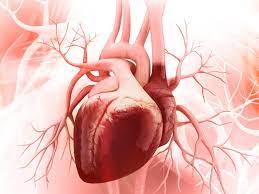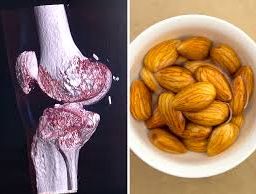
Preventing Heart Disease – Tips for a Healthy Heart
In the battle against heart disease, understanding and tackling key risk factors are paramount. This comprehensive guide delves into the critical aspects of preventing this condition, offering insights into lifestyle changes and proactive measures to safeguard your cardiovascular health. Empower yourself with knowledge to lead a heart-healthy life.

Heart disease remains a leading cause of death worldwide, making it crucial to understand and address the risk factors associated with this condition. While some factors like age and family history are beyond our control, there are several lifestyle choices we can modify to reduce our risk. By proactively addressing these risk factors, we can significantly improve our heart health and lower the chances of developing this condition.
1. High Blood Pressure: The Silent Threat
High blood pressure, or hypertension, is a major risk factor for heart disease. It strains the arteries and forces the heart to work harder, increasing the likelihood of heart attacks, strokes, and cardiovascular complications. To address high blood pressure, adopting a healthy lifestyle is crucial. This includes maintaining a balanced diet low in sodium and saturated fats, engaging in regular physical activity, managing stress levels, limiting alcohol consumption, and quitting smoking. In some cases, healthcare professionals may prescribe medication to effectively control blood pressure.

2. Elevated Cholesterol Levels: The Culprit Behind Artery Blockage
High cholesterol levels in the blood lead to plaque formation in the arteries, narrowing them and reducing blood flow to the heart. This condition, known as atherosclerosis, significantly raises the risk of heart conditions. To address elevated cholesterol levels, focus on adopting a heart-healthy diet low in trans fats and saturated fats. Incorporating foods rich in omega-3 fatty acids, like fatty fish, nuts, and seeds, can help reduce cholesterol. Regular exercise and maintaining a healthy weight are also vital in managing cholesterol levels. In certain cases, medication may be necessary to control cholesterol effectively.
3. Diabetes: A Double Risk for Heart Health
Diabetes and heart disease often coexist, as individuals with diabetes face a higher risk due to factors like high blood sugar levels, obesity, and high blood pressure. To address diabetes as a risk factor for heart conditions, it is crucial to manage blood sugar levels through medication, regular exercise, and a balanced diet. Regular monitoring of blood glucose levels and close collaboration with healthcare professionals can help individuals with diabetes reduce their risk of heart disease.

4. Unhealthy Lifestyle Choices: The Road to Heart Disease
Certain lifestyle choices significantly contribute to the development of heart disease. For instance, smoking damages blood vessels and increases the risk of atherosclerosis. Quitting smoking is one of the most effective ways to reduce the risk of heart disease. Additionally, excessive alcohol consumption raises blood pressure and heart disease risk. Moderation is critical, and individuals should limit alcohol intake according to guidelines. Sedentary behavior and a lack of physical activity also contribute to heart disease risk. Engaging in regular exercise, such as brisk walking, swimming, or cycling, can improve heart health and lower the risk of heart problems.
Heart disease is a serious global health concern, but we can take steps to mitigate our risk. Although some risk factors like age and family history are beyond our control, we have the power to address modifiable factors. By managing high blood pressure, controlling cholesterol levels, addressing diabetes, and making healthier lifestyle choices, we can significantly improve our heart health and reduce the likelihood of developing heart disease. Working closely with healthcare professionals to develop personalized strategies is essential. Remember, prevention is always better than cure when it comes to heart disease.
Disclaimer: The information provided in this content is for general informational purposes only. It is not intended as medical or healthcare advice, diagnosis, or treatment. Always seek the advice of a qualified healthcare professional with any questions you may have regarding a medical condition or healthcare decisions.
















